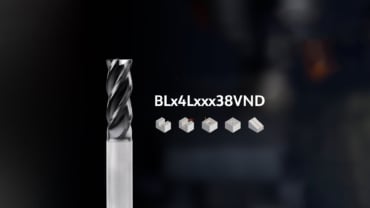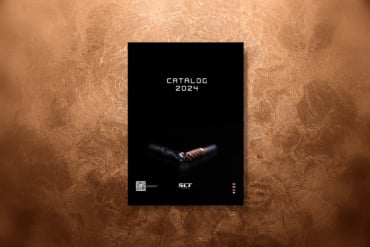Not all materials are created equal—certainly not in machining.
Whether you’re working with stainless steel, titanium, graphite, or hardened steel, each material comes with its own unique behavior under stress, heat, and tool load. Choosing the right tool is essential, especially when precision, tool life, and surface finish are non-negotiable.
In this article, we explore our five major material groups and explain how SCT Tools’ solid carbide end mills are uniquely suited for each. On top of that, we explain you about the purpose of our Quickfinder-UNI.
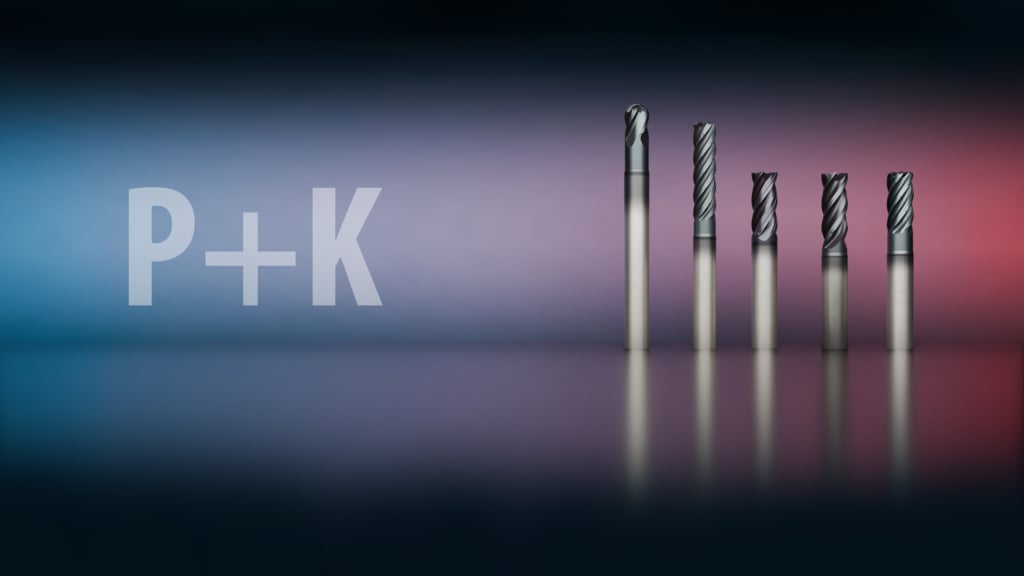
ISO-P+K | Steel and Cast Iron
Steel and cast iron are among the most commonly machined materials, but that doesn’t mean they’re without challenges. From low-carbon construction steels to harder alloyed types and the various cast iron forms, machinists face issues like heat generation, scale, and tool wear.
One of the key difficulties with cast iron is its abrasive nature, especially in grey or vermicular grades. Interrupted cuts and scale on the surface can rapidly deteriorate a cutting edge. Steel, depending on the alloy, may generate significant heat during cutting, increasing the risk of cutting-edge wear.
SCT Tools’ carbide end mills stand out in these materials thanks to their high wear resistance and temperature stability, originating from the SCT Tools signature geometries. Coatings like TiCN,TiAlN, AlCrN or AlTiN form a protective barrier against heat and abrasion, while our optimized cutting geometries support efficient chip evacuation and minimize vibration—even in tough interrupted cuts.
SCT Tools for ISO-P+K materials, the durable solution.
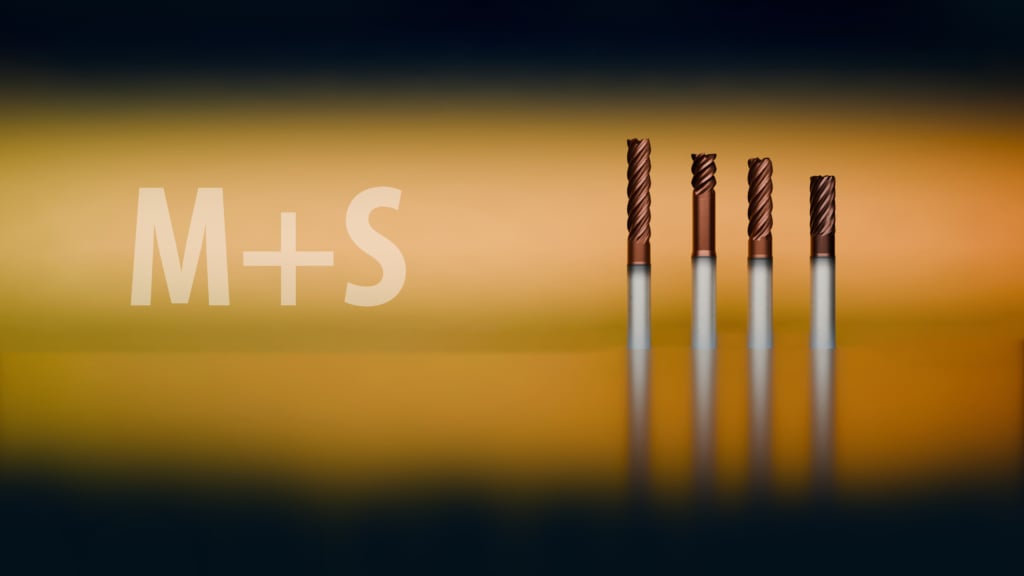
ISO-M+S | Stainless Steels, Titanium & Heat-Resistant Alloys
This group of materials is particularly challenging due to their low thermal conductivity, high strength at elevated temperatures, and tendency to work-harden. Stainless steels are known for their toughness, while nickel- and titanium-based alloys like Inconel and Hastelloy are notorious for generating excessive heat and quickly dulling conventional tools.
Here’s where SCT Tools’ solid carbide end mills excel. Specially designed end mills for ISO- M+S materials feature the distinct SCT Tools geometries consisting of advanced helixes with sharp, edge prepped cutting edges and high-performance AlCr and TiSiN coatings that resist heat and built-up edge formation.
When tool life in expensive, exotic materials is key, rely on SCT Tools ISO M+S tools to do the job.
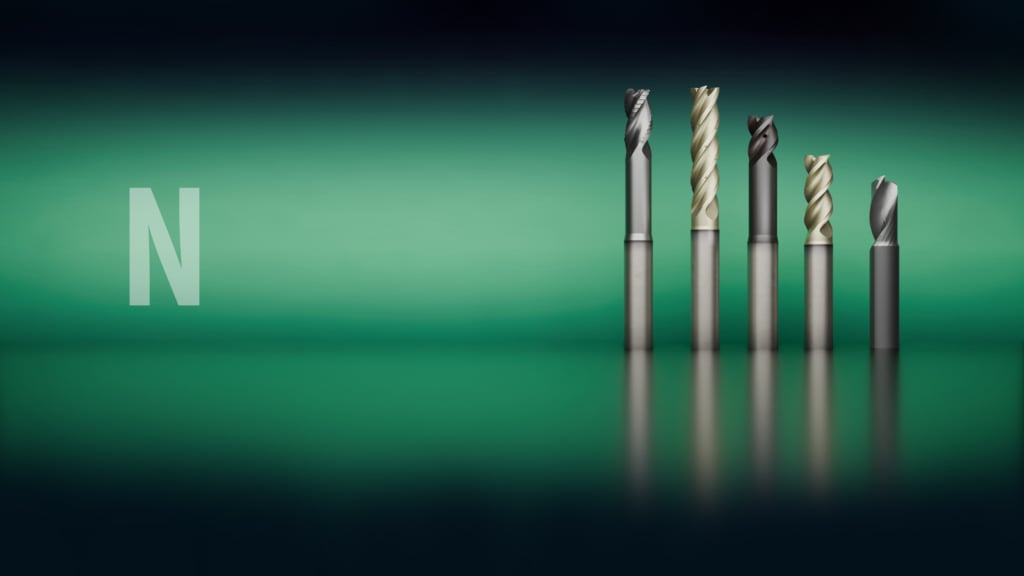
ISO-N | Non-Ferrous Materials
Non-ferrous materials are generally easy to cut, but they bring a different set of challenges—most notably, chip control and surface quality. Materials like aluminum can stick to the cutting edge, forming built-up edges that compromise both dimensional accuracy and surface finish. Copper and brass, while softer, can be sensitive to surface pressure, causing deformation or tearing during cutting.
SCT Tools solid carbide end mills for ISO-N materials are designed with sharper cutting edges, which are often cutting edge prepped and larger flute spaces to support smooth chip flow. In a lot of tool types found in our range, variable helix geometries contribute to stabile production, eliminating vibration and allowing cuts at extraordinary cutting speeds. In most cases, these tools are either uncoated or feature a low-friction coating like ZrN or DLC to prevent material adhesion.
SCT Tools carbide end mills for ISO-N materials allow for extreme productivity and surface finish.
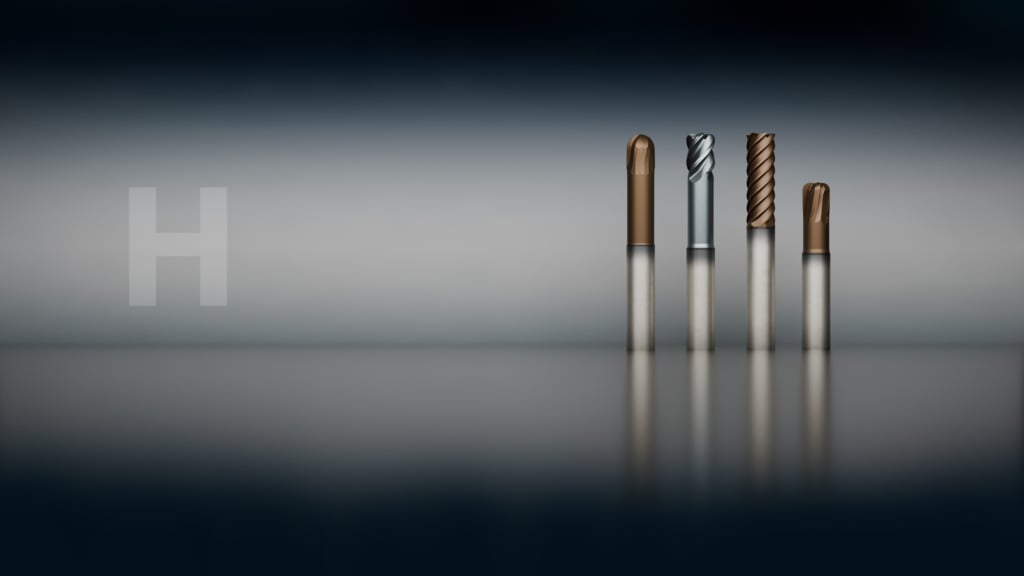
ISO-H | Hardened Steel
Machining hardened steels—divided in <54, 54-60 and >60 HRC—requires tools that can withstand extreme pressure and temperature without losing their cutting edge. These materials are common in mold making, die casting, and precision tooling, where high dimensional stability and surface finishing are essential.
SCT Tools solid carbide end mills are engineered for this exact purpose. Starting with very rigid SCT Tools’ geometries, made out of ultra-fine grain carbide and coated with wear-resistant coatings like AlCrN or TiSiN, they maintain sharp cutting edges even after prolonged use.
In hardened materials, precision is everything. Mostly because the hardened products are milled in the final process, before being delivered to the customer. SCT Tools end mills for ISO H materials are ground to extremely tight tolerances, minimizing vibration and ensuring clean, high surface finish quality. Their rigidity also helps prevent deflection, which is critical when working on fine details or small cavities in the final parts of the production process.
When machining hardened materials is your focus, implement SCT Tools ISO-H tools to show you how it’s done.
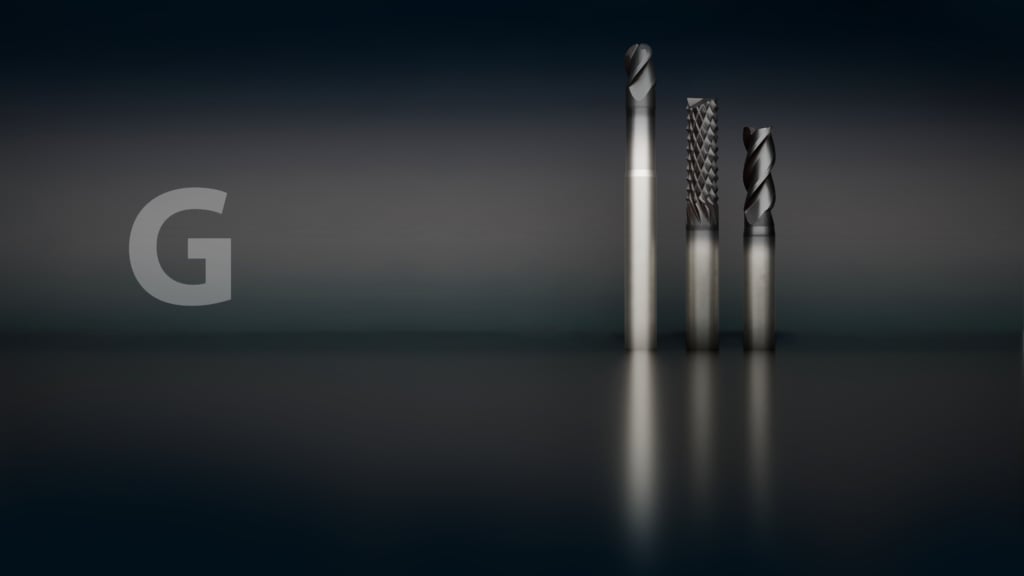
ISO-G | Graphite
Graphite is widely used for EDM electrodes, molds, and certain aerospace applications. While it is relatively easy to cut, it’s one of the most abrasive materials you can machine. The fine graphite particles behave like sandpaper, rapidly wearing down coatings and eventually
cutting tools. The dust also poses a hazard to both machine components and cutting performance if not properly managed.
Milling graphite requires tools that combine extreme hardness with a geometry optimized for fine dust evacuation. SCT Tools ISO-G end mills for graphite are coated with a rough and tough diamond (CVD) coating which drastically reduce wear and help maintain edge integrity.
Tool geometries are adapted for low cutting forces and clean profiling, ensuring that the delicate features often required in EDM electrode manufacturing remain sharp and dimensionally accurate.
In abrasive materials you can rely on the stability and durability of the SCT Tools ISO-G end mills.
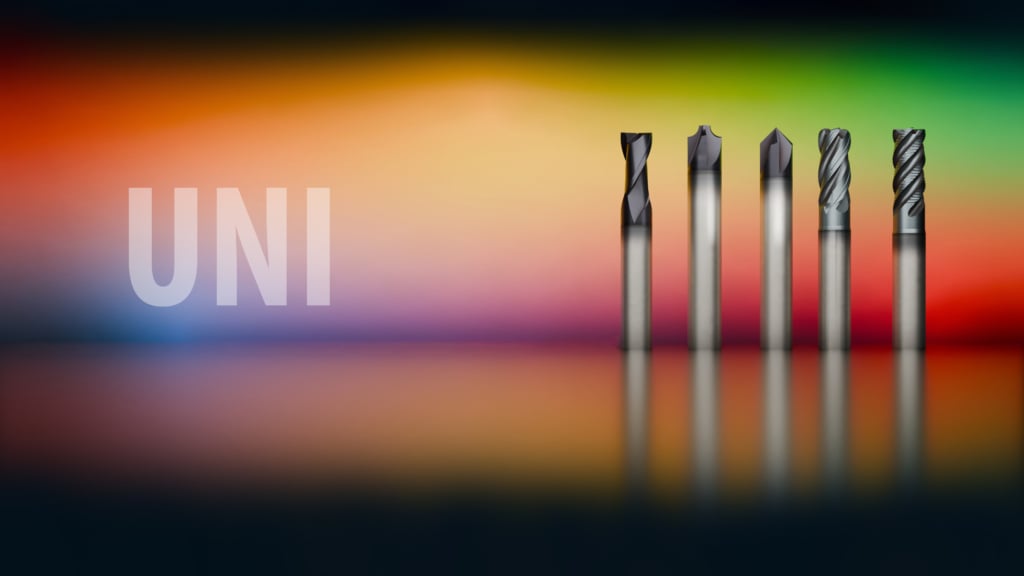
Quickfinder-UNI
In a modern machining environment, flexibility is key. Production batches are often smaller, material changes more frequent, and downtime for tool changes increasingly costly. That’s why having a solid carbide end mill capable of delivering consistent performance across multiple material types is no longer a luxury—it’s a necessity.
Our range of multi-purpose, universal carbide end mills is designed for exactly that. These tools excel in steels, stainless steels and cast iron. Engineered with a balanced geometry and cutting-edge carbide grades, they combine stability, chip control, and tool life into one solution. Whether you’re roughing structural steel in the morning and finishing stainless parts in the afternoon, the tool remains reliable and predictable.
The secret lies in the combination of the distinct SCT tools geometry, a very reliable and universal micro grain carbide, coated with TiCN, TiAlN, AlCrN or AlTiN coating. This makes the tools very universal.
In our catalogue you will only find the universal tools through our Quickfinder-UNI. There is no specific chapter in which the tools are shown, as this range is composed out of tools from the ISO-P+K chapter.
If you need one tool to do jobs in multiple materials, go through our Quickfinder-UNI to find universal performance.
Conclusion
Every material group brings its own set of machining challenges. Understanding those challenges is the first step—but having the right tool is what makes the difference in daily practice.
SCT Tools end mills, properly designed for the material at hand, offer unmatched performance, precision, and longevity. Whether you’re machining steel, inconel or graphite,
hardened steel or aluminum, with the right SCT tool, you’re equipped to take on even the most demanding jobs with confidence.


